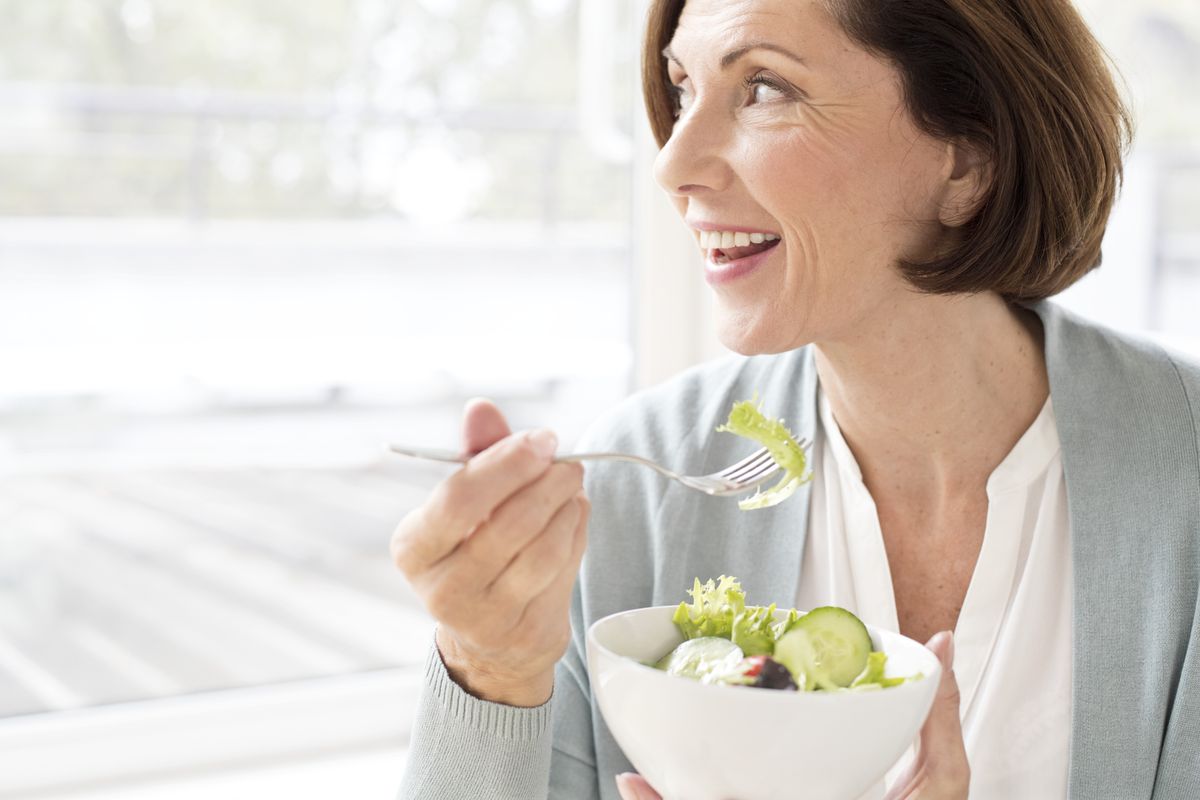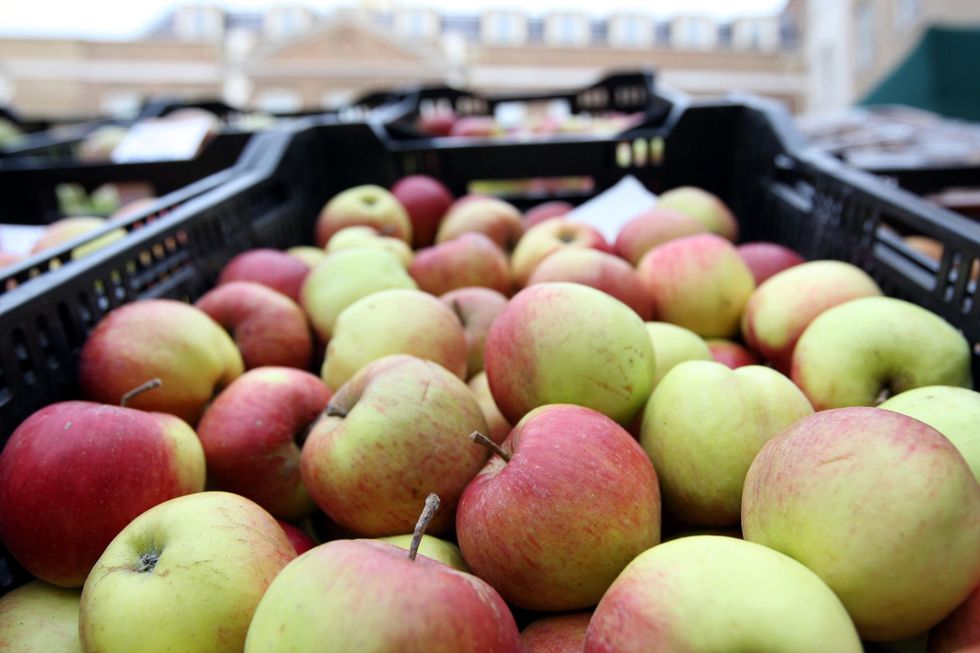How your nutrition needs to change as you age - what to eat in your 50s, 60s and 70s to improve health

Nutrition should change throughout the years
GETTY

Nutrition should change throughout the years
What the body needs changes over the years and some vitamins become more important as we age.
Speaking exclusively to GB News, Bio-Kult’s technical advisor Kim Plaza shared what you need to eat as you age.
She explained that different vitamins and compounds are vital at various stages of life.
These can be obtained through supplements, such as Bio-Kult Migréa, or by eating more of certain foods.

Leafy greens are important for health
GETTY
In your 50s
The expert said women in their 50s should look for compounds found in foods such as flaxseeds, beans and lentils.
Kim explained: "Phytoestrogens are natural compounds that are able to dock to oestrogen receptors, thought to exert a mildly oestrogenic effect.
"Although clinical research for the use of phytoestrogens is ongoing, they could be useful for supporting blood health and minimising night sweats and hot flushes during menopause.
"They are found in flaxseeds, organic whole soybean products such as fermented tofu, and also sesame seeds, fenugreek, beans and lentils.
"There aren’t any dietary recommendations for phytoestrogens as such, however they may become especially important as oestrogen levels begin to decline.
"Foods that are rich in magnesium and vitamin B6 are also particularly helpful around this time, as they are both helpful for reducing tiredness and fatigue, whilst vitamin B6 is helpful for regulating hormones. Try foods such as salmon, mackerel, grass-fed meat, leafy green vegetables, pulses, nuts and seeds."
In your 60s
Eating foods rich in Omega-3, such as chia seed, walnuts and salmon, and foods containing carotenoids, such as colourful fruits and vegetables, becomes important during this decade.
Kim explained: "As we age, we experience changes in the levels of neurotransmitters and structural changes within the brain have also been observed. These changes may increase the risk of a decline in neurocognitive health.
"B vitamins are hugely important here as well, as they could help to minimise the risk of stroke, so keep up with the wholegrains and leafy green vegetables.
"Antioxidant nutrients like carotenoids may also be good to keep an eye on, as well as maintaining adequate levels of beneficial fatty acids, such as omega-3 fats. Evidence suggests that maintaining levels of these carotenoids may be associated with a reduced risk of age-related macular degeneration and cognitive decline.
"Carotenoids are found in brightly coloured fruit and vegetables, so go for foods such as kale, bell peppers, tomatoes, broccoli and carrots. Omega-3 can be found in flax and chia seeds, walnuts, and fish such as salmon, sardines and herring. One large study found that increasing our consumption of long-chain polyunsaturated fatty acids (found in these foods) was associated with living longer."
LATEST DEVELOPMENTS

Eating plenty of fruits and vegetables in key
PA
In your 70s
Looking after bone health becomes more important through the decades. It is key to think of this and try to get plenty of vitamin D during these years.
Kim added: "Bone health is a common concern as we age, as bone mineral density tends to decline. Older individuals are reported to have a 10-fold increase in fracture risk compared with younger individuals.
"Hormonal changes following the menopause can leave women particularly susceptible to developing conditions such as osteoporosis. Low Vitamin D is a risk factor for osteoporosis.
"Vitamin D isn’t easily obtainable through food, we get most of it via sun exposure during the lighter months, however it may be necessary to have levels checked and supplement where needed."
This comes as experts share the eight healthy lifestyle habits that can slow your ageing process by six years.